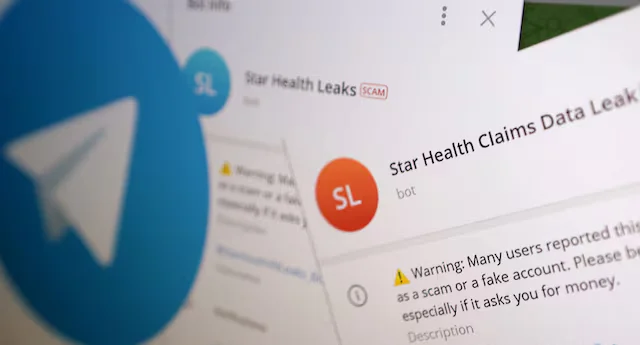The Article Tells The Story of:
- Columbus Ransomware Breach: The Rhysida ransomware gang breached Columbus city systems in July, compromising sensitive data of over 500,000 residents, bank details, and identification documents.
- Ransom and Dark Web Leak: The gang demanded a $1.9 million ransom and later leaked 3.1 terabytes of stolen data online, despite initial assurances from city officials about data integrity.
- Legal and Cybersecurity Fallout: Columbus filed a lawsuit against cybersecurity researcher David Ross, alleging his involvement in handling stolen data.
- Call for Proactive Cybersecurity: The attack highlights the urgent need for public institutions to adopt stronger cybersecurity measures, including system audits.
Star Health India Data Leak Crisis –Telegram’s Struggle with Oversight of Chatbot Accounts Recently, the messaging app Telegram faced legal woes related to its inability to monitor all accounts of its chatbots that were related to a massive data breach involving India’s largest health insurer, Star Health. This has sparked a more critical discussion on the roles of digital services to keep users’ data and private.
Check Out similar Article of Telegram Founder Slams ‘Misguided’ Arrest in France on SquaredTech
Background of the Leaked Data Incident
The controversy began after a Reuters report on September 20 revealed that a hacker used Telegram chatbots to access confidential customer data from Star Health. This included biometric IDs and medical claim documents. The data breach significantly damaged Star Health’s reputation, causing its stock value to drop by nearly 11%.
In October 2017, Star Health approached the Madras High Court, seeking a directive for Telegram to delete all bots linked to the leak. This highlighted the need for accountability and stronger data protection in today’s fast-paced digital world.
Telegram’s legal defense argued that monitoring every chatbot is impractical and could violate Indian laws. The platform pledged to block harmful content only when reported.
This incident raises key questions about messaging platforms’ responsibilities regarding user-generated content. While Telegram acted promptly to delete flagged content, broader concerns about liability and oversight remain.
Check Out similar Article of The Arrest of Telegram CEO Pavel Durov on SquaredTech
This is going to be dependent on whether Star Health can provide information needed in time.
In a very short time, the news has created such a fallout for Star Health that apart from damaging its reputation, the leakage has also started reflecting financially. The hacker wrote an email to the company stating that he wanted $68,000 as ransom for not releasing the documents and thereby heightened the need to settle the issue sooner rather than later. This and the fact that the company’s stock continues to go downhill in the market also testify to the same point of view.
In the midst of these challenges, Star Health has also launched an internal probe into whether its chief security officer was involved in the data leak. The investigation has not yet yielded evidence of wrongdoing, but it shows the complexity of data security in corporate settings.
International Scrutiny and the Future of Telegram
This is not an incident in a vacuum. For some time now, Telegram has been facing grave international criticism, especially following the formal probe against the app’s creator, Pavel Durov, conducted in France on August 28. There has been a presumption that perhaps the app had done something unlawful that had necessitated further investigation about its policy and practices. To quell the various criticisms aired against them, Durov and Telegram have also denied doing anything inappropriate, even as they assured the world that they were indeed taking serious steps to remedy the attacks hurled at them.
Check Out similar Article of Telegram’s EvilVideo Zero-Day Exploit on SquaredTech
Judicial Directions: Road Ahead?
The just concluded court hearing, in which Justice Kumaresh Babu of the Madras High Court ordered Star Health to furnish Telegram with information relating to specific problematic chatbots, was a great step towards this collaborative approach towards more efficient action against maligned accounts. The directive also further reflects the growing recognition of a need for cooperation between the digital platforms and businesses concerned in protecting user data.
While this inability to have the capacity to watch every single one of them throws open enormous challenges when speaking about Telegram, it has resulted in even greater steps regarding data security. A verdict still awaits how it turns out, but such an occurrence should call upon clear guidelines on what responsibility lies on the messenger and so forth.
Conclusion: Ongoing Debate Regarding Digital Responsibility
The Star Health data leak raises critical questions about digital accountability, user privacy, and platform obligations. With advancing technology and increased chatbot usage, protecting sensitive information is more important than ever.
Companies and organizations must work together to strengthen data security. This collaboration will shape how platforms like Telegram handle user-generated content and prevent future breaches.
The outcome of this case will influence digital platforms’ responsibilities and set guidelines for managing data breaches. Both Star Health and Telegram are under scrutiny as they implement measures to protect user data.
Stay updated: Tech News


